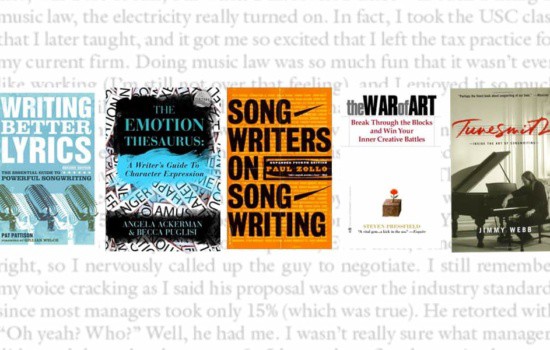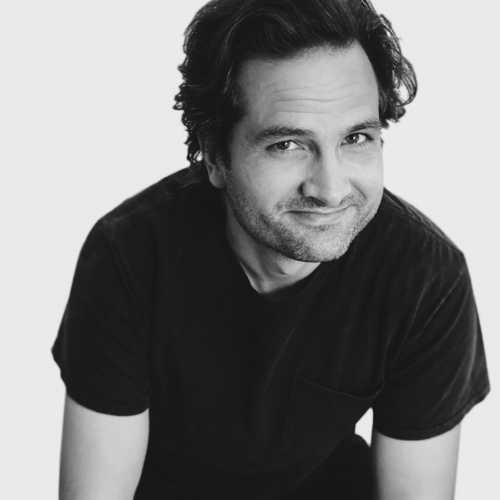Writing lyrics is hard.
Every songwriter can relate to this feeling: trying to write lyrics that will change people’s lives but ending up writing garbage (or so we tell ourselves).
So this post will walk you through some tips and steps on how to write song lyrics. If you apply these suggestions to your songwriting, you’ll write songs you’re happier with and that are more impactful.
Now that we’ve covered all these lyric-writing tips, let’s simplify the process and break it into 6 steps you can use to write song lyrics. These steps don’t always happen in this order, and you may be finding the melody and chord progression simultaneously.
Just use this as a general guide to get you started:
- Find a song concept: this is the heart of your song, the thesis of your idea
- Decide on the hook: this is usually one line that sums up the idea of the song at the end of the chorus, and it’s usually your title
- Write the chorus: after you have the hook, write the other lyrics of the chorus, lyrics that support the main idea
- Write the verses: the verses need to point to and build up to the chorus/hook
- Get it out right away: just get some initial lyrics down, even if you don’t like them, you just need something to work with
- Edit: now you can go back and refine, polish, and rearrange your lyrics until the chorus and hook are catchy, the verses point to the chorus/hook, and the whole song genuinely makes you feel something
Songwriting has no strict rules, but if you’re struggling with writing lyrics, it can be helpful to know the parts of a song:
Here’s a quick refresher:
- Intro
- Verses
- Pre-Chorus
- Chorus
- Bridge
- Outro
First, research.
There are two books every songwriter should read: Songwriters On Songwriting and More Songwriters On Songwriting, both by Paul Zollo. T
hese books are a collection of 50+ interviews with some of the greatest songwriters in modern music.
Pull up the lyrics of your favorite songs and just read the words. Ask yourself why you like them. What kinds of analogies, metaphors, similes, or stories do they use? Take what you learn and incorporate it into your own writing.
Songwriter Aaron Espe – whose songs have been on Grey’s Anatomy, Orange Is The New Black, and many other shows and commercials – told me that beginner songwriters should start by learning how to play their favorite songs.
“I wouldn’t go straight from not knowing how to write a song to writing a song,” he says.
“I would go from not knowing how to write a song to learning other people’s songs. That way, each time you learn a song and you can play it, you know it pretty intimately. You know the decisions that were made going into it, you know where the chorus is, where the verses fall. You know when they’re following the basic pattern, when they break it.”
Once you know how to play your favorite songwriters’ songs, rewrite them.
This is one of my favorite methods for generating song ideas. Look at the lyrics of a song you like, then rewrite them in a way you would say them. Pair them with entirely new music. The result won’t sound like the original – it will sound like you.
Re-writing other songwriters’ songs is a common thing that folk artists and poets have done for a long time.
James Taylor rewrote The Beatles’ song “Treat Me Like You Did The Night Before” and ended up with his song “Turn Away.”
T.S. Eliot said “Bad poets imitate; good poets steal.”
Woody Guthrie, writer of “This Land Is Your Land,” once said, “I steal from everybody.”
And writer and artist Austin Kleon even wrote a book about how you should “steal like an artist.”
As long as you are making it your own, re-writing someone’s song is one of the best ways to get a song going.
This is one of the most effective exercises for getting lyrics out, especially if you’re feeling stuck.
Stream-of-consciousness writing involves writing non-stop for a set amount of time, like 3-5 minutes. I prefer doing this on my computer because I can type faster than I can write by hand.
Set a timer. Then write without thinking, even if it’s gibberish. Once the time is up, look through what you’ve written for song ideas, titles, and lyrics.
The title is like the thesis of your song. Every lyric in the song should point to the title, helping to guide you as you write. Finding the title early on can help you discover what your song is truly about.
Grammy-winning songwriter/artist H.E.R. says finding a concept for your song and writing lyrics should not be forced.
“With creative processes, sometimes you don’t know where to start,” she says.
“And I think it’s important to not force it. … It’s just, ‘These are the words that I want to say, these are the things that I feel,’ and we should start with that.”
The chorus, or the hook, is (should be) the most memorable part of your song and encapsulates what the song is about.
It’s a good idea to write the chorus before the other parts of the song.
Since the chorus needs to be the strongest part, it’s best to nail it down before moving on to the verses.
Once you have a strong chorus, it’s time to structure the rest of the song.
Outline the song so your verses lead up to or point to the chorus in some way.
Start with verse one, then verse two, and decide if the song needs a third verse, bridge, tag, pre-chorus, and/or outro.
Metaphors and similes are powerful tools in songwriting. They allow you to create vivid imagery and convey complex emotions in a relatable way.
Metaphor: compares two things by stating one is the other
A simple metaphor would be like the song “Life Is a Highway” by Tom Cochrane. This is that.
A more complex metaphor may not say “this is that,” but instead, paint a picture that represents something else. An example of this is The Beatles’ “Blackbird,” which represents “the black people’s struggle in the southern states,” according to Paul McCartney.
Simile: compares two things by using “like” or “as”
Hozier uses similes in his song “Too Sweet”:
You know you’re bright as the morning, as soft as the rain
Pretty as a vine, as sweet as a grape
Taylor Swift uses similes a lot, like in her song “august”:
August sipped away like a bottle of wine
‘Cause you were never mine
It’s better to show the listener what you’re saying or feeling instead of just telling them directly. As H.E.R. says, “Oftentimes, the best songs paint a picture – you can see it.”
For example, instead of saying, “I’m angry,” you could say, “I punched a hole through the wall and a hole through your heart.”
Or instead of saying, “I don’t want you to leave,” you could say, “I hid your car keys.”
Show us something so we have an image in our minds.
People are drawn to stories. So telling a story through your lyrics will pull the listener in.
You can write out your story as if it were a part of a book, then rearrange and edit down the lyrics to fit your song’s structure and melody.
Read the lyrics of any song by Noah Kahn, Paul Simon, Bob Dylan, or pretty much any modern singer-songwriter and you’ll hear a story.
One of my favorite story songs is “A Little Bit of Everything” by Dawes. Each verse tells a different story that points to the main idea of the chorus. Here’s the first verse:
With his back against the San Francisco traffic
On the bridges side that faces towards the jail
Setting out to join a demographic
He hoists his first leg up over the rail
And a phone call is made
Police cars show up quickly
The sergeant slams his passenger door
He says, ‘Hey son why don’t you talk through this with me
Just tell me what you’re doing it for”
You and your listeners will connect with your lyrics more easily if you write like you speak. It’s easy to overthink the words and try to sound poetic because you want to sound cool, but that can sometimes come off as inauthentic and make it harder for the lyrics to resonate.
Writing like you speak makes it easier to just say what you mean. And you don’t have to stick to your rhyming scheme if what you want to say doesn’t rhyme.
If you want to hear examples of writing like you speak, read the lyrics of songwriters who write “journal entry” songs. Think Taylor Swift, Haley Joelle, Lana Del Rey, and Olivia Rodrigo.
A recent example is Shaboozey’s hit country song “A Bar Song (Tipsy)”:
My baby want a Birkin, she’s been tellin’ me all night long
Gasoline and groceries, the list goes on and on
This nine-to-five ain’t workin’, why the hell do I work so hard?
I can’t worry ’bout my problems, I can’t take ’em when I’m gone
If you do want to rhyme, it can be helpful to use tools like RhymeZone or WordHippo.
Rhyming can help the lyrics flow better and sound a bit more satisfying — for whatever reason, our brains like when songs rhyme.
Also, to find more interesting words, try using a synonym of your word with a tool like Merriam-Webster’s thesaurus.
Don’t over-use the thesaurus or else you could end up with lyrics that don’t sound like how you would talk or like you at all. Instead, try switching out one word of your song with a synonym and see if it makes the lyrics more interesting.
After drafting the song and recording at least a voice memo of it, let it sit for a day or two.
Then come back to it with fresh ears and listen to it.
Notice what stands out as not working or what could be stronger, then edit and revise the lyrics.
The key to getting better at writing lyrics is to keep doing it. Songwriting is a muscle; it’s a craft. You have to practice to improve.
J. Cole, Grammy-winning rapper, songwriter, and producer, says you have to keep writing so you don’t lose trust in yourself.
“When you don’t write for a while, you wait around for the inspiration — that’s the thing I had to cut out,” he says.
“Because you could wait forever and nothing will ever come. And then when you come back…the trust you have in the things that you say or the things that want to be said…you second guess them. Because you haven’t been in the momentum of trusting and seeing results.”
I suggest putting yourself on a schedule. Even if you only have 20 minutes in the evening, take that time to write. Small steps are better than standing still.
And honestly, if you truly love songwriting, you won’t need external motivation. If you’re a real songwriter, you’ll have an internal drive to collect ideas that you can later turn into songs.







